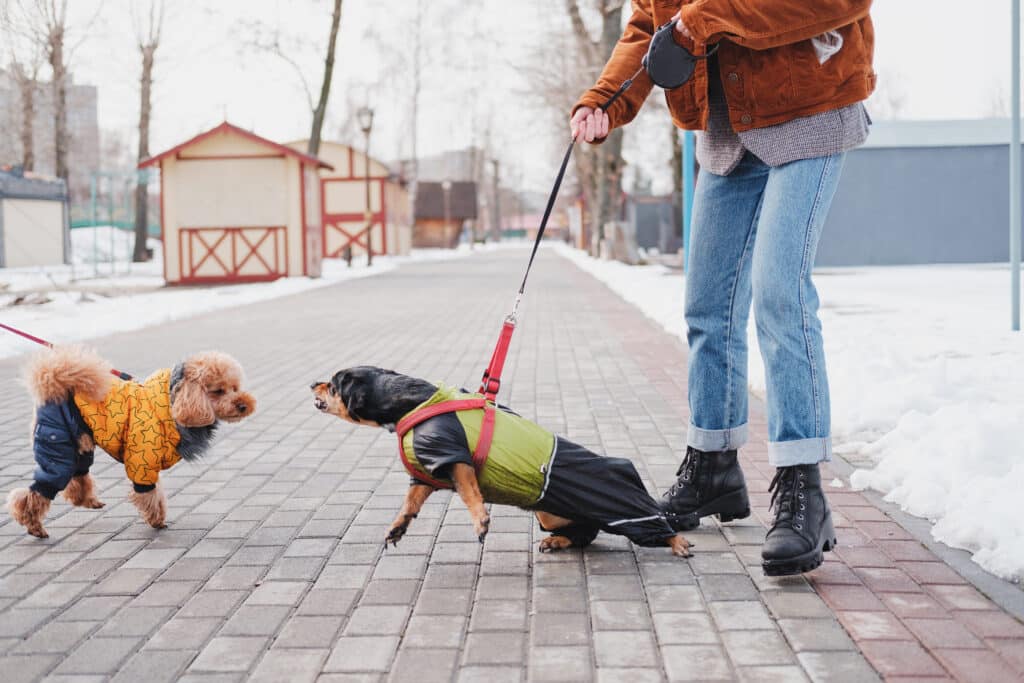Pandemic Puppy Owners Struggle With Their Dog’s Bad Behavior, Study Says
A study by the Royal Veterinary College (RVC) shows many owners who got their puppies during the height of the COVID-19 pandemic are struggling with their dog’s bad behavior.
The ongoing study, funded by Battersea, an animal rescue charity, surveyed more than 1,000 UK dog owners who bought a puppy from 2019 to 2020.
The authors of the study asked the dog owners to identify behavioral problems they saw in their young dogs.

The list included 24 behaviors like pulling on a leash, jumping up, being clingy, being aggressive towards other dogs and people, and being afraid of other dogs, people, and loud noises.
The study found that almost all (97%) of the owners reported that their dog displayed at least one problem from the list.
The most frequent behavior problem were pulling on a leash (84%), attention-seeking (77%), fear/avoidance behaviors (41%) and then aggressive behaviors (25%).
And these behavioral problems lead to the rise in training using negative reinforcement/positive punishment.
As a matter of fact, when dealing with these problems, 80% reported using one or more negative training methods, with 39% admitting to using two or more.
However, the author warns that executing this training method “is often poorly effective” and in some cases, makes the existing problems worse.
Owners were less likely to use negative training methods if they attended online puppy classes with their dog during the pandemic, which shows the importance of educating owners when it comes to being responsible pet parents.



Dr. Rowena Packer, the lead author of the study and Lecturer in Companion Animal Behaviour and Welfare Science at the RVC said, “Although we understand these problem behaviors can be very frustrating for owners, they are often a sign a dog is struggling to cope or that they haven’t been taught an appropriate response in a situation, rather than dogs intentionally behaving ‘badly’.”
“Punishing problem behaviors can lead to dogs becoming anxious and fearful, going on to develop further problem behaviors, including aggression,” she continued.
Regarding the use of negative training methods, Robert Bays, Battersea’s Senior Animal Behavior Manager said they are “deeply concerned by this study’s findings”.
He explained, “This approach can often cause further behavioral problems in adulthood and lead to suppression of behavior, not to mention significantly damage the relationship between pet and owner, which can be challenging to overcome in the future.”
However, Bays believes that this ongoing study regarding pandemic puppies will help provide us with a greater understanding of the behavioral needs of these dogs.
This will, in turn, provide current and future dog owners with the correct support and training advice they need to become responsible pet parents.




